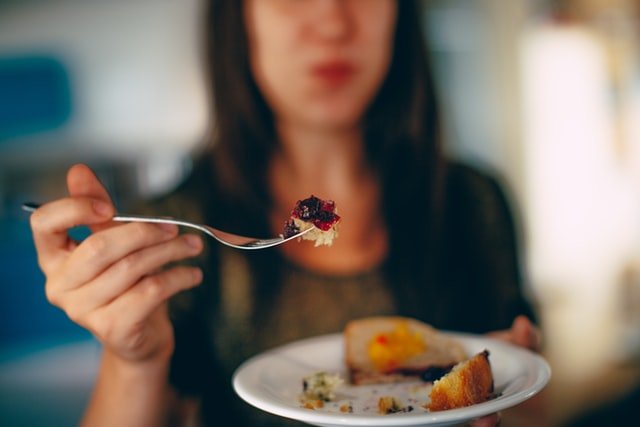
Many Americans are playing it safe and practicing social distancing and self-isolation as they try to limit the spread of germs during the COVID-19 pandemic.
But being cooped up at home may mean that eating, especially eating snacks and junk food, is the way many people will occupy the time they work from home or spend with loved ones.
So, how can you stay healthy during a pandemic?
Beth Kitchin, Ph.D., assistant professor with the University of Alabama at Birmingham’s Department of Nutrition Sciences, says social distancing can make it easier and harder:
“More free time might mean more walks and less eating out,” Kitchin said. “Working from home means less structured time. That can mean more snacking.
Kitchin says the worry, stress and anxiety that naturally come with a global pandemic can lead to stress eating and cravings.
“Less frequent visits to the grocery store means fewer fresh fruits and vegetables in the house,” she said. “And many of my friends on social media are telling me that cravings are a big problem for them.”
Here are a few strategies from Kitchin:
Distinguish true hunger from a craving:
If you ate three to four hours ago, you should be hungry now! Stay on a scheduled eating pattern as much as possible with planned meals every four to five hours or so. If you need a snack to quell hunger, plan for those too.
Time/distance technique
If you know you are not truly hungry and you just keep thinking about those chips or cookies that are calling out to you from the kitchen, then you have got a craving situation.
You may be great at social distancing by now, so it is time to work on time distancing to control cravings. Here is how it works:
You just cannot stop thinking about the chips. So, tell yourself: “If I am still thinking about those chips 15 minutes from now, I get to eat them.”
Set your phone timer for 15 minutes and do something — anything. Go for a 15-minute walk. Read, clean, study, watch TV, or phone a friend.
“What often happens is the craving just passes with the time gap,” Kitchen said. “This really does work a lot of the time.”
But what if after the 15 minutes you still crave the chips?
Eat the chips — mindfully
Yes, that is right. If you are still craving them, then eat them. But, do not bring the whole bag back with you to the couch. Read the label to see what a serving is and how many calories are in that serving.
Then measure that out and put it on a plate or bowl. Take that plate or bowl to the couch and eat those chips with laser focus, enjoying each one.
She also recommends that eating something healthy along with those chips can help. Eat carrots or an apple along with the chips. This will fill up time to help the craving pass and also fill you up with fiber.
Ambush the craving
If you find that you have cravings at the same time every day, set up an ambush. Plan a snack that satisfies you and add in something healthy.
For instance, do not expect just raw carrots to fill you up. Dip them in peanut butter or some ranch dressing or hummus, or add in a slice of cheese.
Not only will the added fat help to satisfy you, it helps you to absorb fat-soluble nutrients like beta carotene from the carrots.
Research has shown that, when you eat vegetables without any fat, you absorb very little beta carotene.
Grocery Shopping in the Time of COVID-19
When you shop, please do not hoard. Shop for food thinking about what you need for the next week or, at most, two.
Buy fresh meats that you can eat over the next few days. If you have a good amount of freezer space, use it.
Buy protein sources that last when you do not have fresh meat. Cheese, eggs, canned and pouch tuna, and salmon are all great complete, high-quality proteins.
Starchy beans when paired with rice also make a high-quality protein. Peanut butter is also a great protein that when paired with a grain (a peanut butter sandwich) is a complete, high-quality protein.
Some fresh vegetables and fruits last a lot longer than others. Grapes, apples, carrots and potatoes stay fresher longer than lettuce and berries.
Buy frozen and canned fruits and vegetables for when you run out of fresh.
For more updates on COVID-19, visit uab.edu/coronavirus.



